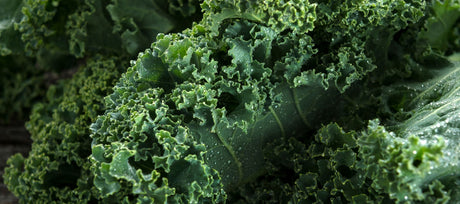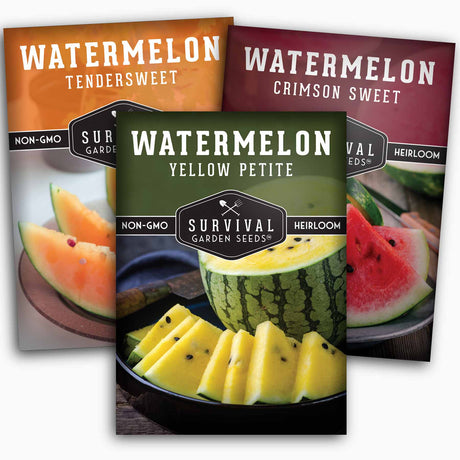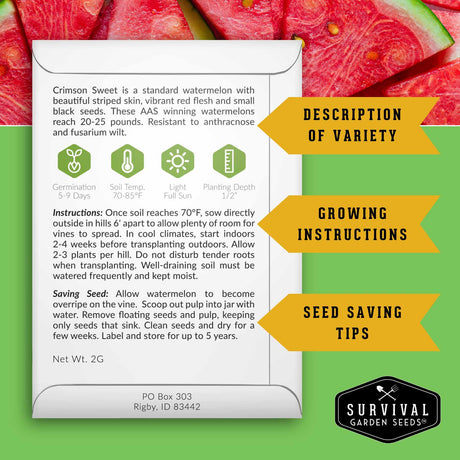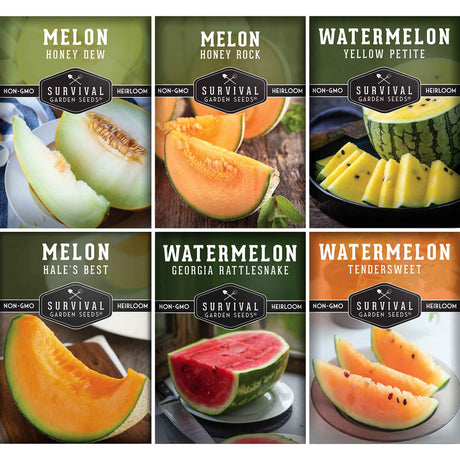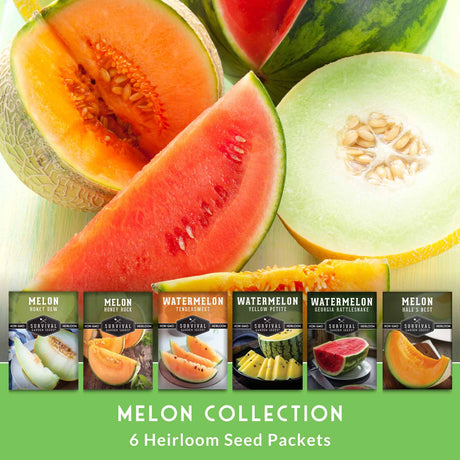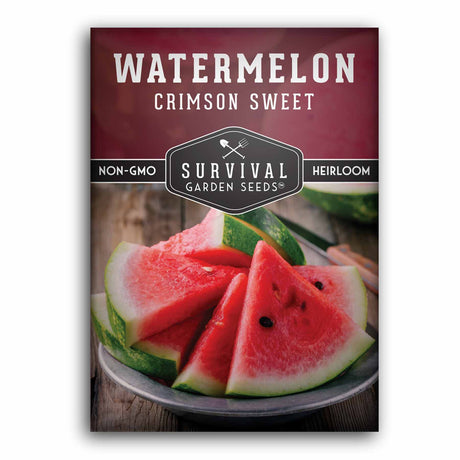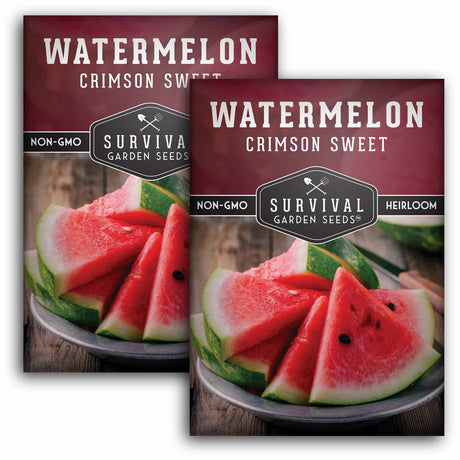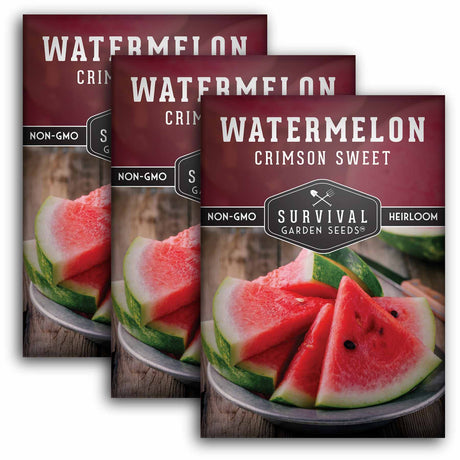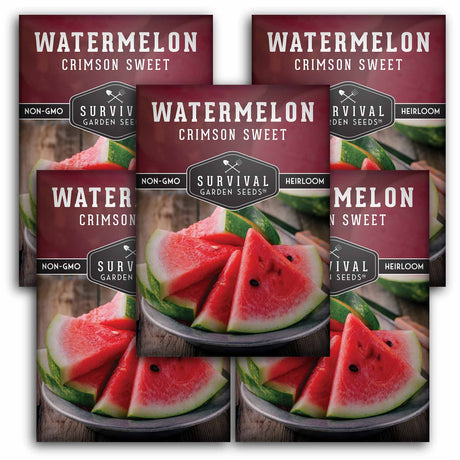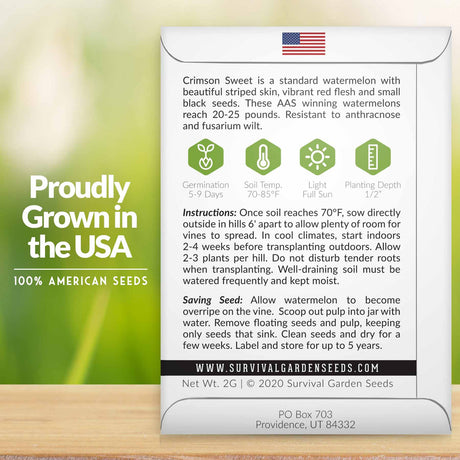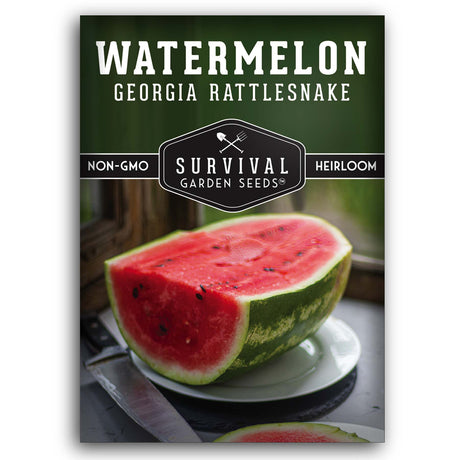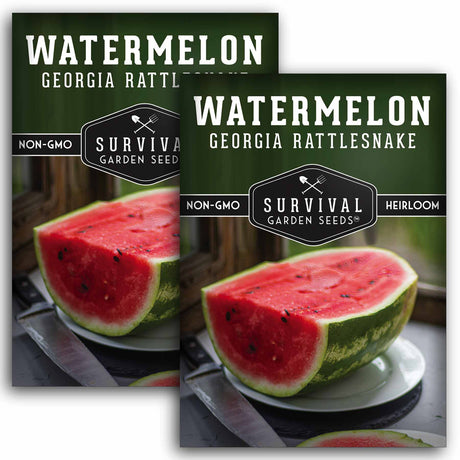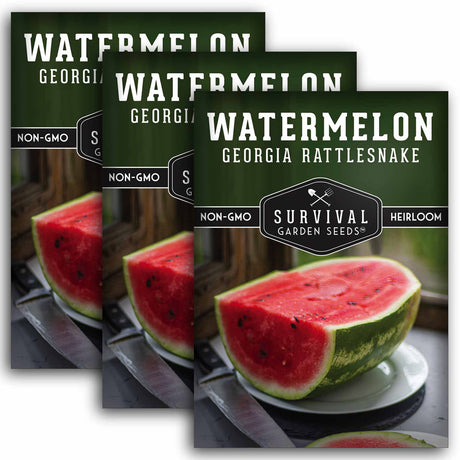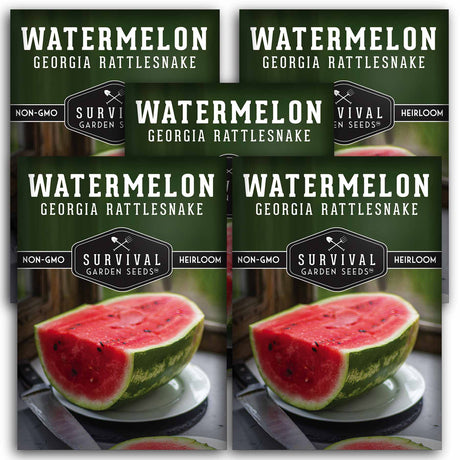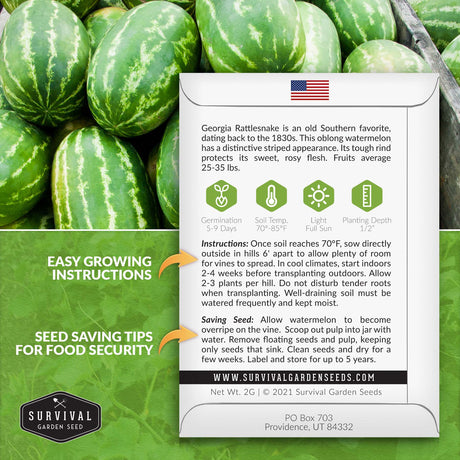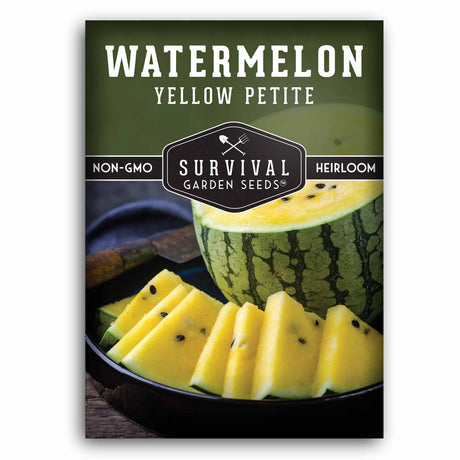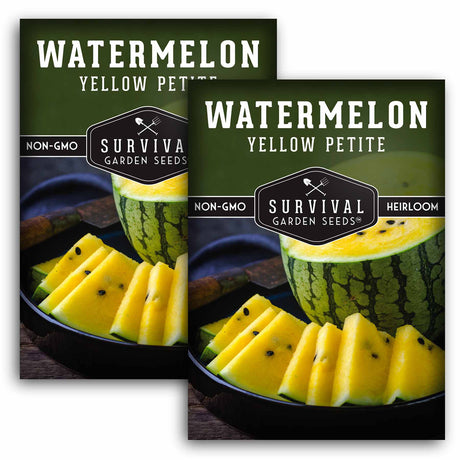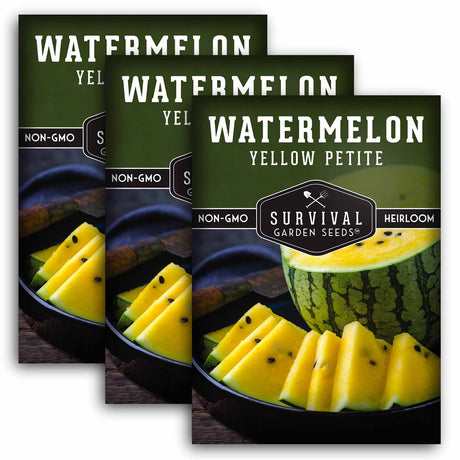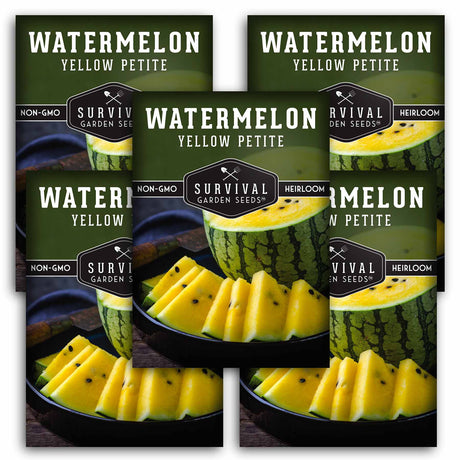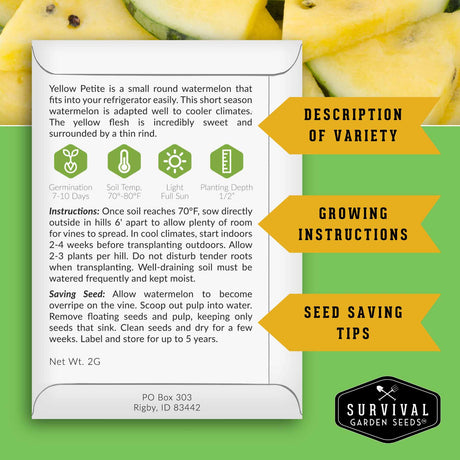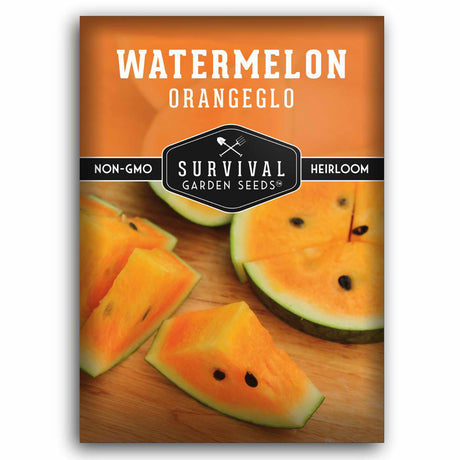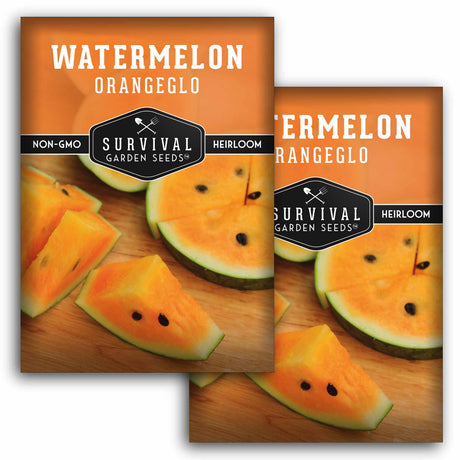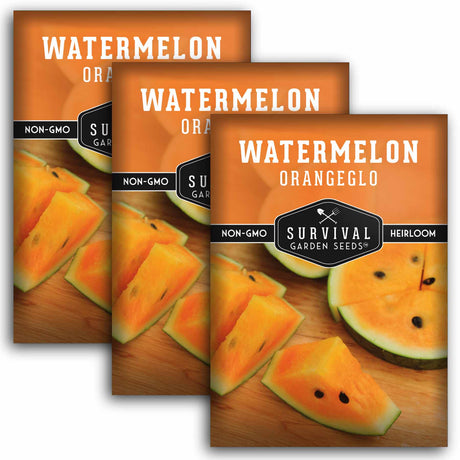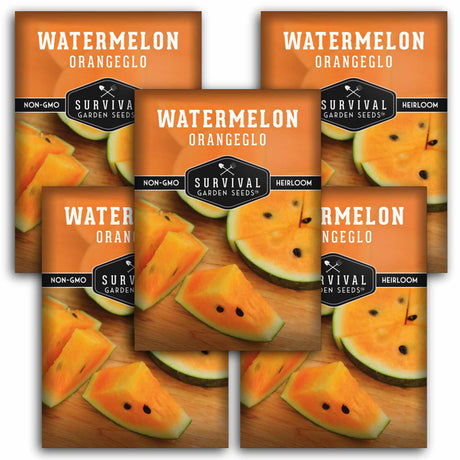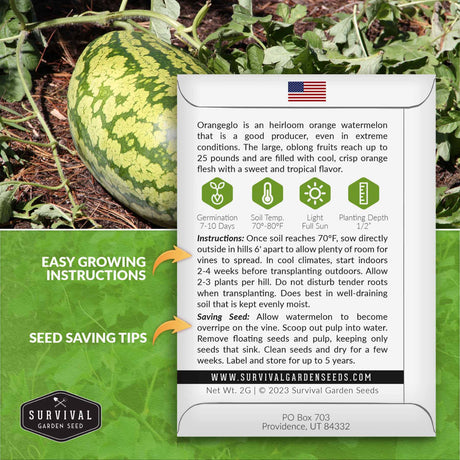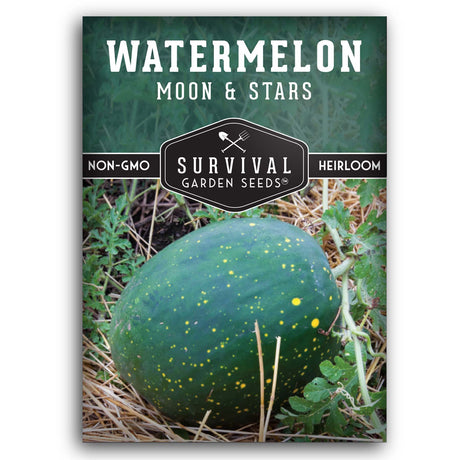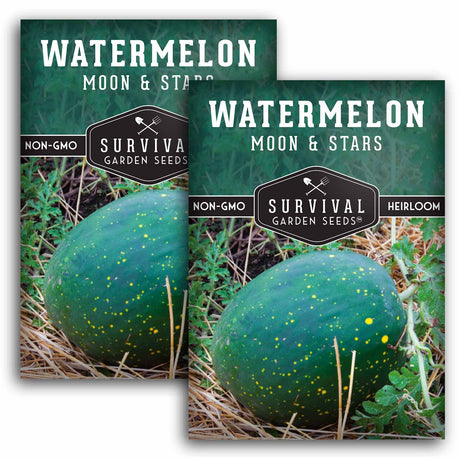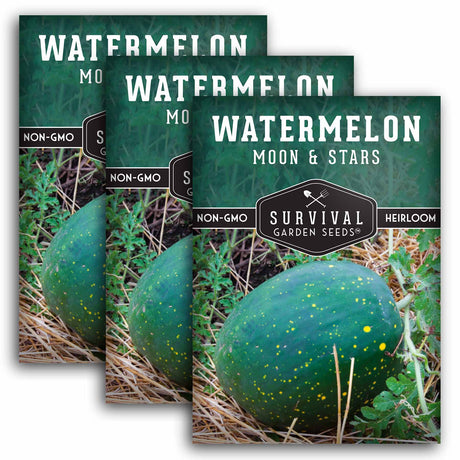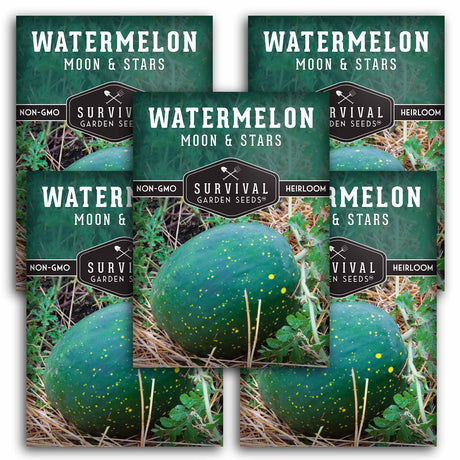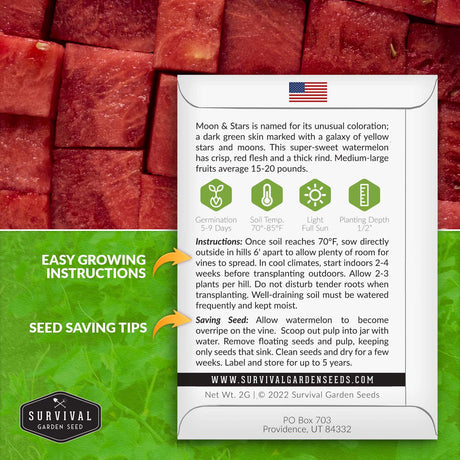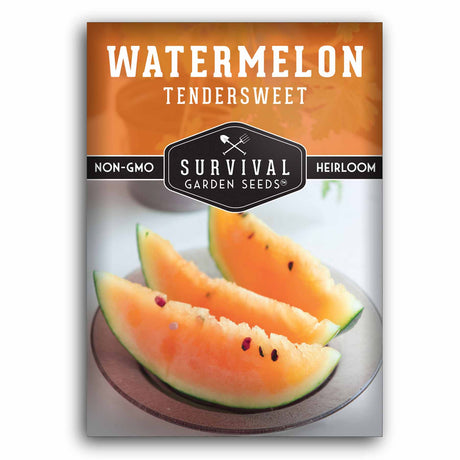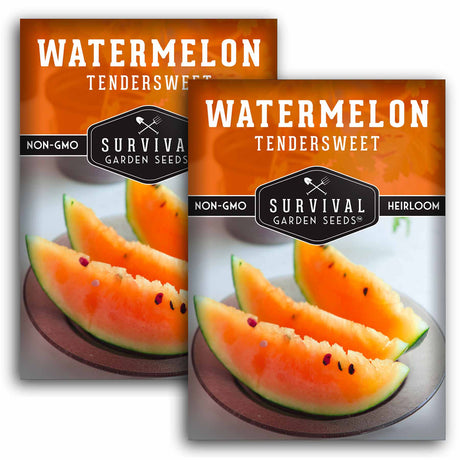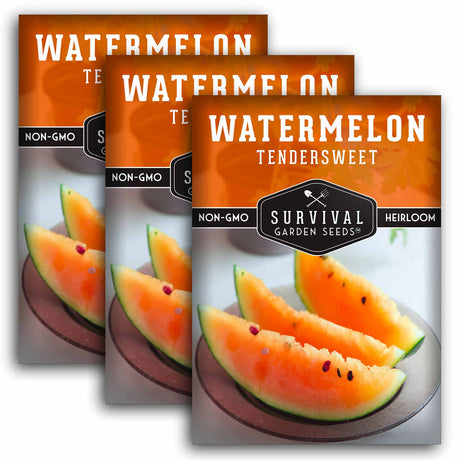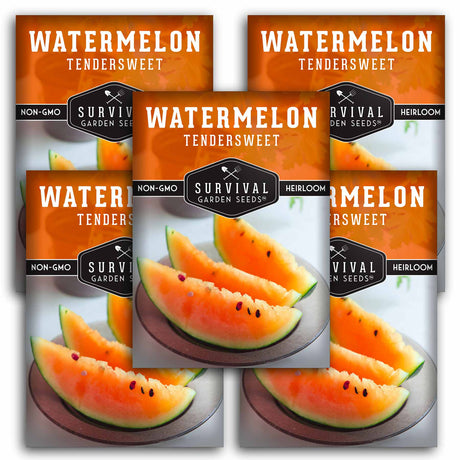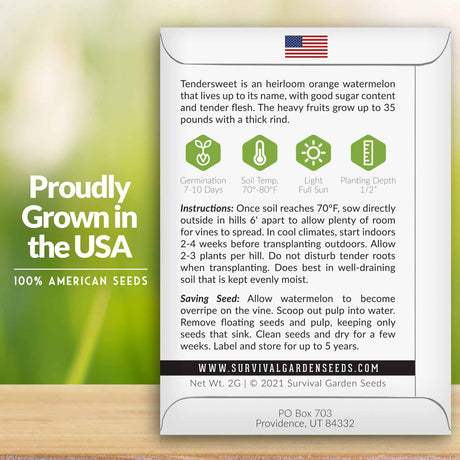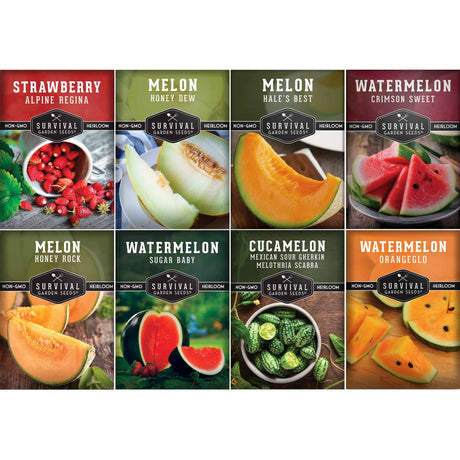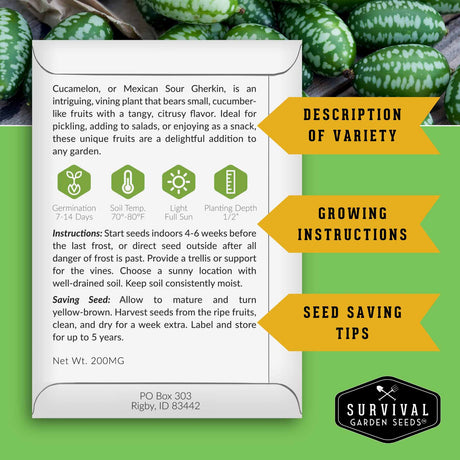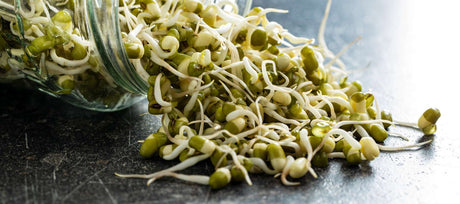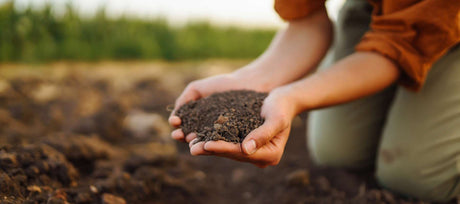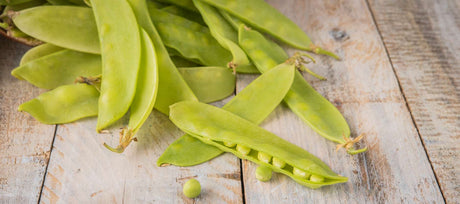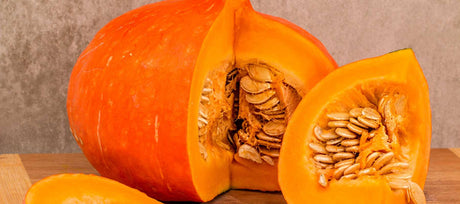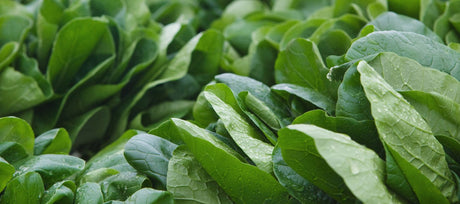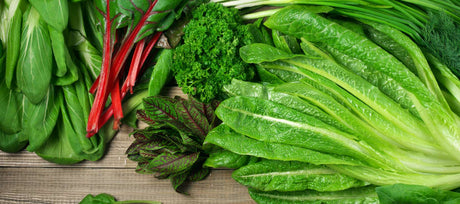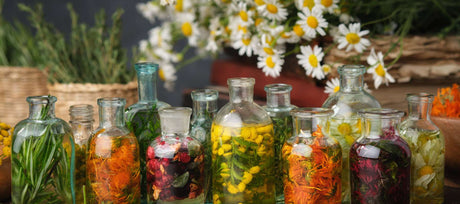Survival Garden Seeds offers quite a few varieties of watermelon seeds for sale, including classic Crimson Sweet, the beloved Sugar Baby, and the exotic Moon and Stars. Each variety is carefully packaged with detailed instructions for successful planting.
Growing Watermelon Seeds in Your Garden
- Annual plant that thrives in hot climates
- 7 tasty varieties are available, including short-season varieties
- Non-GMO heirloom watermelon seeds
- Abundant in lycopene, vitamins, minerals, and fiber
FACTS ABOUT WATERMELON SEEDS
Watermelons are native to Africa but adopted worldwide in places with hot summers or access to hothouses. The long growing season for watermelon peaks in the hot summer months, with harvest in late summer to early fall. Watermelon plants come in many varieties including compact bush-type plants and sprawling vines producing massive fruits. With the right care, watermelons can be grown from USDA hardiness zones 3 through 11.
PLANTING WATERMELON SEEDS
To achieve the best results, watermelon seeds should be planted directly in your garden in a sunny location once the soil temperature reaches at least 70°F. You can also start watermelons early indoors in areas with short growing seasons. Transplants must be handled with care, so avoiding disturbing the delicate roots. Seed planting is done one inch deep in hills or rows, providing space for vine growth. Adding compost or matured manure before planting enhances soil fertility and helps with moisture retention.
Watering your watermelon plants is crucial, especially during fruit development. Just like other vegetables from the same family (e.g. cucumbers and squashes), watermelon fruits are mostly water. Keeping this in mind while cultivating them helps with planning. Once established, watermelons can tolerate short dry periods, but they perform best with regular watering.
MAINTAINING WATERMELON PLANTS
Watermelons prefer a sunny location where they can receive six to eight hours of direct sunlight per day. They perform best in rich, loamy soil. Mulching around plants is advised, as it helps retain soil moisture and controls weeds. As the vines grow, monitor for pests and diseases to make sure nothing hinders healthy development. If possible, elevating the fruits off the ground can help with airflow and prevent rot issues.
The anticipation of trying a home-grown watermelon is part of the joy of gardening. choose a variety of watermelon with seeds, so that you can save your seeds and plant again and again in upcoming years. And, of course, enjoy the sweet juicy reward at the end of the harvest season!
